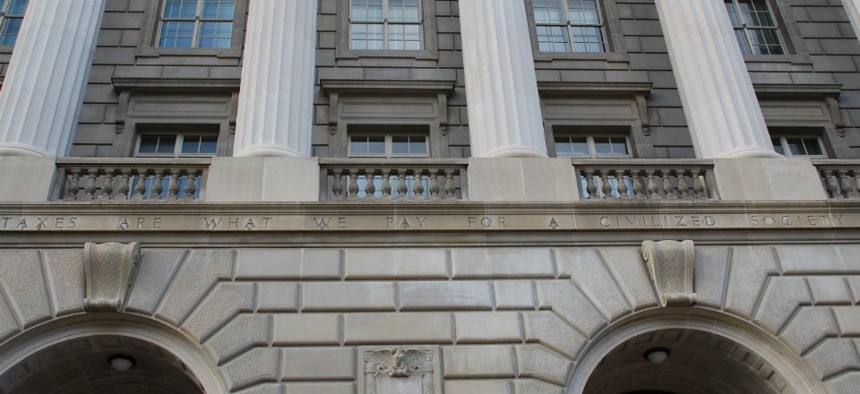
Flickr user Adam Fagen
House Oversight Floats 15 Reforms to ‘Depoliticize’ IRS
Revenue Commissioner says Republicans will never be satisfied with emails turned over.
After a year of tense hearings on alleged political targeting by the Internal Revenue Service, Republicans on the House oversight panel proposed 15 changes they say would rescue the “broken agency” from politicization.
Released Wednesday, the same day new emails came out revealing anti-conservative comments from former IRS executive Lois Lerner, the staff report from the House Oversight and Government Reform Committee recommended relieving the agency of responsibility for screening social welfare groups’ applications for tax-exempt status. The Republican lawmakers also would replace the commissioner with a bipartisan board and cap the term of the agency’s inspector general.
“The IRS lacks basic public trust and accountability,” according to the report. Led by Chairman Darrell Issa, R-Calif., the lawmakers noted that in recent years, the tax agency “has assumed an increasingly partisan policy-making role [and] has sacrificed its administrative independence for political expedience. The IRS’s structure and lack of effective internal oversight allowed fiefdoms such as the Exempt Organizations Division to grow and wrongdoing to go unexposed and unaddressed.”
As a first step toward bringing “accountability and transparency back to federal tax administration,” the Republicans’ 15 changes would include replacing the commissioner with a multi-member board because “the unitary director structure allowed these serious problems to go unnoticed and unaddressed for multiple years.”
The Treasury Inspector General for Tax Administration, whose May 2013 audit triggered the targeting controversy, comes in for criticism for not turning material over to congressional committees fast enough. “Because tax administration calls for robust oversight,” the report said, “a lifetime appointment for the inspector general creates an overly cozy relationship between the overseer and an agency filled with very senior career officials that transcend administrations. A shorter, fixed term may produce greater zeal on the part of TIGTA in overseeing the work of the IRS.”
Other reforms would prohibit political and policy communications between the IRS and the Executive Office of the President as well as remove the IRS from implementation of the Affordable Care Act.
The House Oversight staff also would eliminate the IRS Oversight Board, set a deadline for processing applications for tax exemptions, give taxpayers more power to fight back if their private tax information is released, and train IRS employees in avoiding the use of private email for official business.
In reaction, Paul Streckfus, an attorney who edits a daily newsletter on IRS Exempt Organizations policy, said, “While I think a number of the recommendations have merit, the first one is just plain stupid.” Replacing the commissioner with a board would merely create another “do-nothing” agency like the Federal Election Commission, he wrote.
“The problem at the IRS in recent years -- and during the ‘scandal’ -- was that in Douglas Shulman the IRS did not have a strong commissioner nor one who knew much tax law. Engraved on the desk of the IRS Commissioner should be Harry Truman’s famous slogan, ‘The buck stops here.’ Lois Lerner was not operating from some isolated post of duty,” Streckfus wrote. “Shulman had Steve Miller, Lerner’s predecessor as EO Division director, as his deputy, so Shulman should never have been in the dark as to what was going on in EO.”
Current Internal Revenue Commissioner John Koskinen, meanwhile, was quoted on Thursday saying that even if all the missing emails from Lois Lerner are recovered and the IRS is exonerated, congressional investigators will not acknowledge fault and may shift the argument to a new accusation. In an interview with reporter William Hoffman from the nonprofit publisher Tax Analysts, Koskinen said his agency has been delivering all information the committees demanded. “The effort has been hampered by an IRS information technology infrastructure that he said averages 15 years old, and an email system that must be scoured computer by computer, with little or no central management in place.”
Koskinen reiterated his view that many IRS problems stem from Congress's ongoing cuts to its budget.
(Image via Flickr user Adam Fagen)







